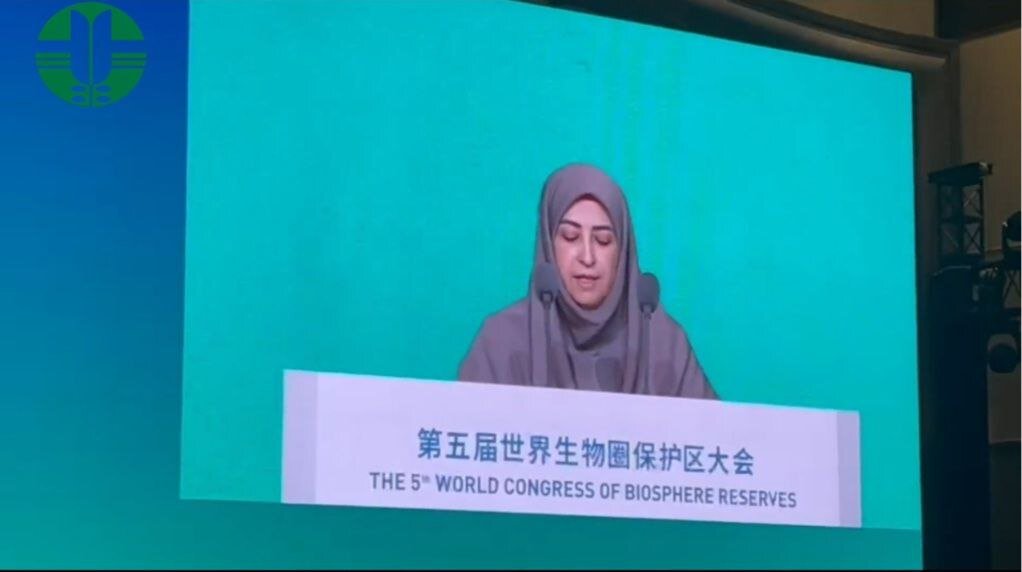Iran ready for twinning between biosphere reserve sites with other countries

TEHRAN – The head of the Department of Environment (DOE), Shina Ansari, has voiced the country's readiness to foster cooperation with other countries, in line with Hangzhou Action Plan, to promote twinning between biosphere reserve sites.
“We are ready to develop a twining mechanism between biosphere reserves in Iran and other countries worldwide to further promote collaboration on research projects, sharing expertise and knowledge, as well as boosting scientific visits,” IRNA quoted Ansari as saying.
The official made the remarks while addressing the fifth World Congress of Biosphere Reserves (WCBR), being held from September 22 to 26 in Hangzhou, China.
“We highlight ecosystem-based and community-centered approaches in managing biosphere reserves so that these areas can expand their impacts beyond their borders and inspire surrounding areas,” she added.
Unfortunately, “biosphere reserves in Iran are adversely affected by heat waves, water scarcity, and climate change. We need solidarity, experience exchange, and support from the World Networks of Biosphere Reserves to strengthen their resilience.
We believe that the United Nations Educational, Scientific, and Cultural Organization’s (UNESCO) member states have the needed capacity to counter unilateralism and expand multilateralism to strengthen World Networks of Biosphere Reserves,” Ansari underlined.
Preserving the World Network of Biosphere Reserves, our common home, is a shared responsibility. These areas are not only sanctuaries for nature, but also symbols of the peaceful coexistence of humans and nature, and a bridge between modern science and traditional knowledge. They should become a center of hope and a sustainable future for our children, she said.
The official also elaborated on biosphere reserves in the country, saying, “Iran, with 13 biosphere reserves, including three wetland sites, two marine and coastal sites, two deserts and arid sites, and six mountainous areas, has always been among pioneering member states in the World Network of Biosphere Reserves.
Biosphere reserves cover less than four percent of our national territory, which is not enough, so we are committed to expanding the network by the establishment of four more biosphere reserves.”
Moreover, Ansari expounded on the Zionist brutal attacks against Iran. Since June 13, Zionist aggressive attacks have targeted nonmilitary infrastructures such as medical centers, water distribution facilities, fuel storage, and gas refineries, which have caused the emissions of CO2 and pollutants in the country. These attacks are not only illegal but are harmful to the environment, human health, and regional stability. The potential consequences extend far beyond national borders, affecting natural ecosystems, air and water resources, food safety, and the well-being of civilians in Iran and across the region, the official said.
Held every 10 years, the World Network of Biosphere Reserves comes together to identify priorities, strengthen collaboration, and define a Global Action Plan for the future.
More than 2000 stakeholders—including scientists, policymakers, community leaders, entrepreneurs, and conservationists—will gather to shape the future of UNESCO’s 750+ biosphere reserves across 136 countries.
Discussions will focus on the World Network of Biosphere Reserves’ contributions to the global biodiversity and sustainable development agenda, aligning efforts with key international frameworks such as the Kunming-Montreal Global Biodiversity Framework, the Paris Agreement on Climate Change, and the International Decade of Science for Sustainable Development.
MT/MG
Leave a Comment